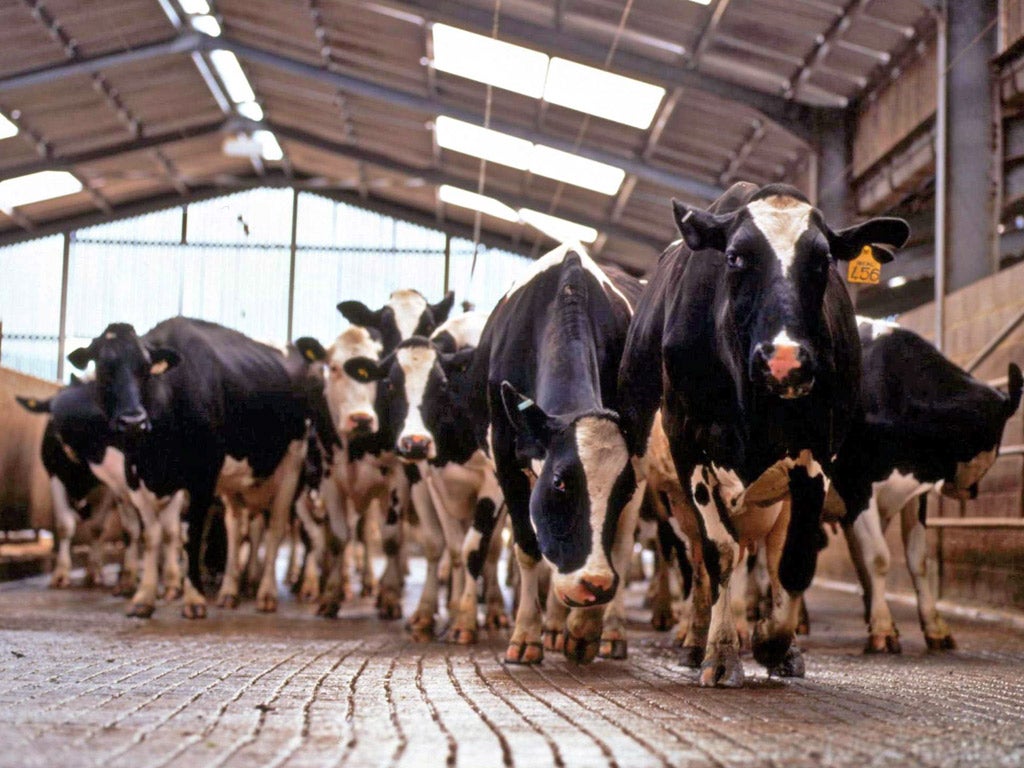Milk crisis turns sour as dairy farmers prepare for supermarket blockade

Your support helps us to tell the story
From reproductive rights to climate change to Big Tech, The Independent is on the ground when the story is developing. Whether it's investigating the financials of Elon Musk's pro-Trump PAC or producing our latest documentary, 'The A Word', which shines a light on the American women fighting for reproductive rights, we know how important it is to parse out the facts from the messaging.
At such a critical moment in US history, we need reporters on the ground. Your donation allows us to keep sending journalists to speak to both sides of the story.
The Independent is trusted by Americans across the entire political spectrum. And unlike many other quality news outlets, we choose not to lock Americans out of our reporting and analysis with paywalls. We believe quality journalism should be available to everyone, paid for by those who can afford it.
Your support makes all the difference.Dairy farmers are planning demonstrations against supermarket chains in protest at lower milk prices that they say will bankrupt them and change the countryside.
Blockading stores and restricting supply by pouring milk down the drain are among measures being considered against Asda, Co-Op and Morrisons, unless the farmers' demands are met – a reversal of the 4p-a-litre cut in the next fortnight.
The grocers pay around 27p a litre for milk, below the 30p cost of production estimated by the National Farmers Union (NFU). Marks & Spencer and Waitrose pay 32p, Sainsbury's 30p and Tesco 29p.
The prospect of escalating action has raised the stakes of a dispute that saw more than 2,500 protesting dairy farmers descend on Westminster last week. The NFU wants a reversal of all this year's cuts. "They are unsustainable, dairy farmers won't be able to stay in business," Fran Barnes, the union's communications manager, said.
The TV chef Hugh Fearnley-Whittingstall said: "What's at stake, ultimately, is the full intensification of the dairy industry, into an indoor industrial process like broiler farming or factory-pig production. So what's also at stake is a whole landscape and a centuries-old rural infrastructure: millions of acres of permanent pastures and hedgerows."
The British Retail Consortium Food said supermarkets paid more for milk than other customers.
Since 2000, the number of dairy farmers has shrunk by 40 per cent to 10,700 and many of those producers were struggling before this summer's price reductions at supermarkets.
Join our commenting forum
Join thought-provoking conversations, follow other Independent readers and see their replies
Comments